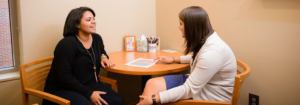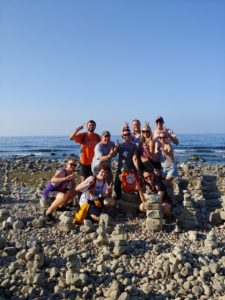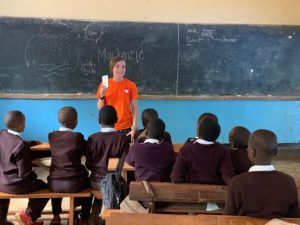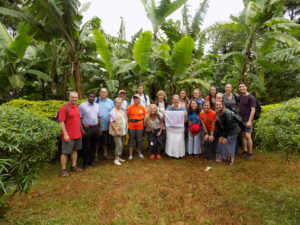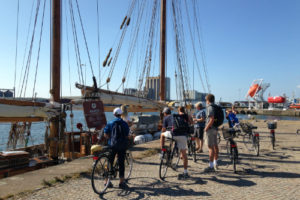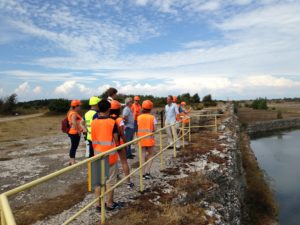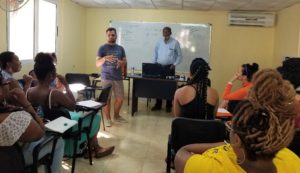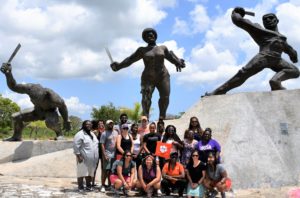When Nicole Entrup first started her undergraduate degree program at Clemson University, she didn’t think that studying abroad would be an option.
“I’m from 12 hours away in New Jersey, so was already paying out-of-state tuition,” Nicole said. “When you think of study abroad, you think of this big cost, and I just didn’t think that it would necessarily be financially attainable.”
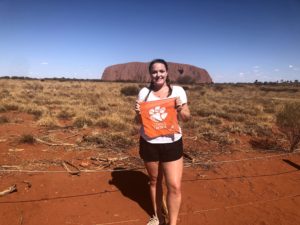
A recreational therapy major in the Department Parks, Recreation and Tourism Management, Nicole had always been curious about what the field was like in other parts of the world. When she was planning her upcoming academic year, her advisor told her that a core degree requirement could be completed as a study abroad in Australia, and that the cost was similar to in-state tuition.
“The in-state tuition for EDGE in Australia made studying abroad a lot more feasible for me,” she said. “I think that also being away from home kind of opened my mind to it too, because if I could handle coming to Clemson, I could also handle going abroad to another country to see what recreational therapy and adaptive sports look like there.”
All students majoring in parks, recreation and tourism management (PRTM) are required to take a semester-long program called EDGE as part of their undergraduate degree. The focus of the semester is to prepare students for their chosen profession, while also helping them build skills and knowledge needed to succeed, such as critical thinking, problem solving, creativity and collaboration.
Throughout the PRTM EDGE semester, students take advantage of multiple opportunities to learn content through the use of innovative teaching methods, undergraduate research, real-world experiences and experiential learning. Students taking the EDGE Abroad program in Australia benefit from an international context to their classroom instruction, giving them the opportunity to build global connections while exploring a different part of the world.
Nicole appreciated the program format, which gave her a manageable balance between classroom learning and building her own industry connections in her free time.
“It was a really good balance of working hard Monday through Thursday, and then you have the weekend to travel, because we don’t have Friday class,” said Nicole. “Every Wednesday would be an educational field trip to somewhere like the Australia Zoo, but we’d be there to learn from them, so it was a really cool, interactive learning experience.”
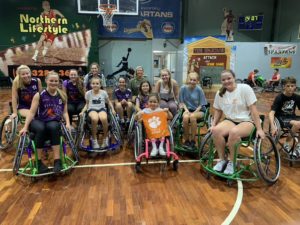
One of the connections Nicole made during her spare time was with the Sporting Wheelies and Disabled Association, which works to ensure that every Queenslander with a disability will have opportunities to live a more active and healthy life.
Nicole reached out to the group, attended one of their workshops and then arranged for her study abroad cohort to participate in a wheelchair basketball practice and learn more about the organization and the people it serves.
PRTM EDGE Abroad is led by PRTM faculty members Teresa Tucker and Charles Chancellor. Chancellor says that Nicole’s initiative created an exciting learning opportunity for both the students in her class and future EDGE Abroad students.
“She singlehandedly sought out the Sporting Wheelies and set up a field experience for the entire class to attend a workshop to learn about the organization that included a chance to meet and play wheelchair basketball with the athletes,” Chancellor said. “The evening was a huge hit and highlight for the entire class regardless of their emphasis area.”
Chancellor added that although EDGE Abroad students regularly make industry connections during the trip, it’s rare for a student to introduce a new industry connection for the program. The Sporting Wheelies event is now a regularly scheduled field experience on the EDGE Abroad itinerary.
Nicole is now working with recreational therapy faculty member Jasmine Townsend to involve the Sporting Wheelies in an international study of adaptive sport organizations. Nicole is also planning to pursue a master’s degree in recreational therapy after graduation, while looking for other ways to grow her Australian connections.
“I just found out that Brisbane, which is the city we stayed in, was just announced as the preferred host location for the 2032 Paralympic Summer Games,” Nicole said. “Hopefully by the time I’ve graduated and been in the field a bit, I can make my way back there with the Paralympics.”
While the on campus EDGE program is offered each fall, spring and summer, EDGE Abroad in Australia is only offered during spring semesters. Signups are underway for Spring 2022 and students are encouraged to contact their academic advisor for details.
